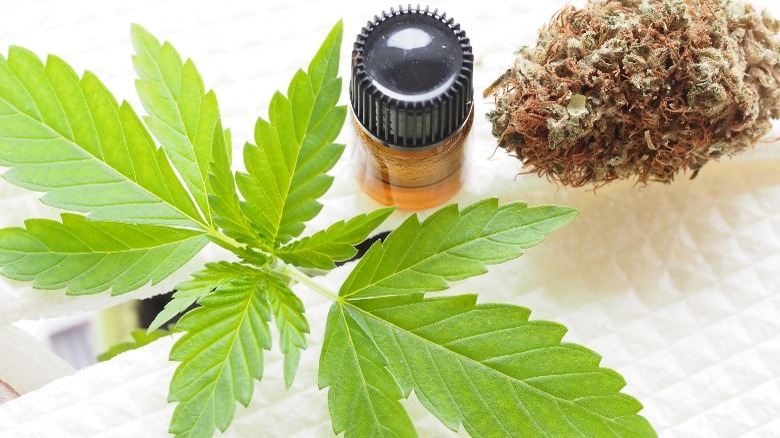Can Cannabis Help You Lose Weight?
The National Institutes of Health (NIH), define "overweight" and "obesity" as health conditions that involve the growth in size and quantity of the body's fat cells. Both conditions are prevalent in the United States, as nearly 75% of people over the age of 20 have one or the other.
While being overweight may be tied to health issues, obesity in particular is associated with an increased risk of developing chronic diseases like some cancers, type 2 diabetes, and heart disease. If you and your doctor decide that weight loss is an appropriate avenue for you, the Centers for Disease Control and Prevention (CDC) state that losing just 5-10% of your body weight can help improve your blood cholesterol, blood pressure, blood sugar, and lower the overall risk of developing obesity-related chronic diseases.
There are a lot of weight loss fads, but the Mayo Clinic says that the only surefire starting point for healthy weight loss involves making lasting changes to your diet and exercise. That means eating healthier and staying physically active in the long run. There are also natural remedies you can try to help with weight loss as you make these lifestyle changes. One of these remedies may be cannabis. Here's everything you need to know about cannabis and weight loss.
Cannabis and weight loss
You may have heard of tetrahydrocannabinol (THC) and cannabidiol (CBD), the two most commonly studied chemical compounds in the cannabis plant that are associated with potential health benefits such as reduced pain and a better night's sleep, per GoodRx. Now, we may be able to add weight loss as another potential benefit.
Contrary to the idea that marijuana — the type of cannabis that contains high amounts of the euphoric and psychoactive component, THC — causes "the munchies" and hence potential weight gain, emerging research explores the potential links between cannabis and weight loss. For example, a 2022 study published in Health Economics found that ever since Washington state legalized recreational marijuana in 2014, obesity rates decreased by 5.4% more than they would have if the state had not legalized it, reports WebMD.
Other research shows that CBD — a non-psychoactive cannabis compound — may also provide some weight loss benefits (via Healthline). For example, CBD may play a role in the "browning" of white fat cells, thereby turning white fat cells into brown ones. Brown fat cells burn calories in order to generate heat in the body.

